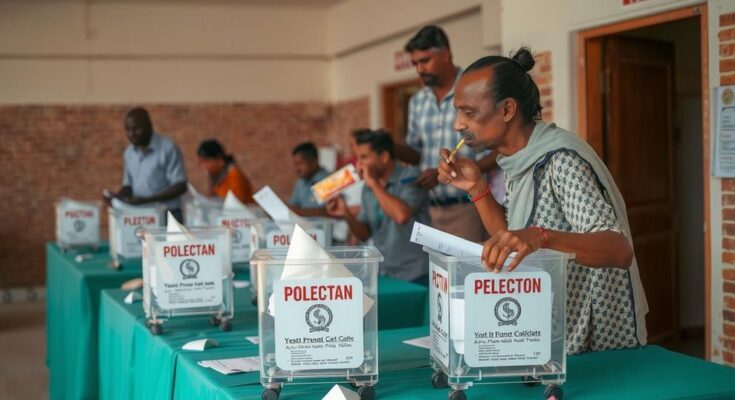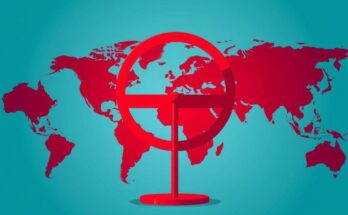Chad is holding its first parliamentary election in 13 years amidst an opposition boycott, claiming predetermined results. The government frames the elections as a step towards democracy. Voter turnout is low, particularly in N’Djamena, with allegations of fraud emerging, while nomadic communities express concerns over their living conditions due to climate change. The elections occur against a backdrop of regional instability and conflict.
Voting is currently taking place in Chad’s first parliamentary election in 13 years, which the government has framed as a critical move towards transitioning away from military rule. This election allows voters to elect representatives for parliament, provincial assemblies, and local councils in a nation grappling with significant poverty and political unrest. Opposition groups are calling for a boycott, claiming that the election results have already been predetermined, resulting in minimal turnout, particularly in the capital, N’Djamena.
Election officials attributed the lack of participation in voter turnout to the cold weather, despite opposition parties urging citizens to reject the elections they deem illegitimate. This boycott is expected to pave the way for candidates aligned with President Mahamat Idriss Deby Itno, who came to power following a military coup in 2021 and was subsequently validated in a presidential election earlier this year. While President Deby encouraged widespread participation, asserting that this day was historic, opposition leaders refuted his claims, stating that the outcomes had already been manipulated.
As the election progresses, notable social issues are emerging, especially among nomadic communities affected by climate change, which has severely impacted their livelihoods and instigated conflict with sedentary farmers. While the electoral agency reported high turnout rates among military personnel and nomads, concerns arise over allegations of operational fraud during the election process, including cases of missing ballots in specific districts. The government portrays this electoral endeavor as a pivotal moment in the shift towards a democratic process in Chad, despite the ongoing volatility in the region, marked by the presence of groups like Boko Haram and regional conflicts, notably in Sudan.
Chad has been under military rule since the death of long-time President Idriss Deby in 2021, leading to international scrutiny over governance and democratic processes in the country. The current parliamentary elections are seen as a significant step toward restoring civilian rule, after a protracted absence of parliamentary elections that has fragmented political processes. Recently, opposition groups have voiced concerns regarding the legitimacy of the electoral process, calling for boycotts and highlighting issues of political oppression and electoral fraud. The socioeconomic challenges complicate the context in which the elections are occurring, as Chad remains one of the poorest countries in the world, with communities facing the brunt of climate change effects and enduring conflicts.
The parliamentary elections in Chad represent a critical juncture in the country’s political landscape, characterized by a significant opposition boycott and allegations of electoral fraud. While the government promotes these elections as a pivotal step toward democracy, widespread disillusionment among the electorate raises questions about the legitimacy of this electoral process. Moreover, it underscores the broader issues of governance, social well-being, and regional stability that must be addressed as Chad navigates its future post-election.
Original Source: www.aljazeera.com




